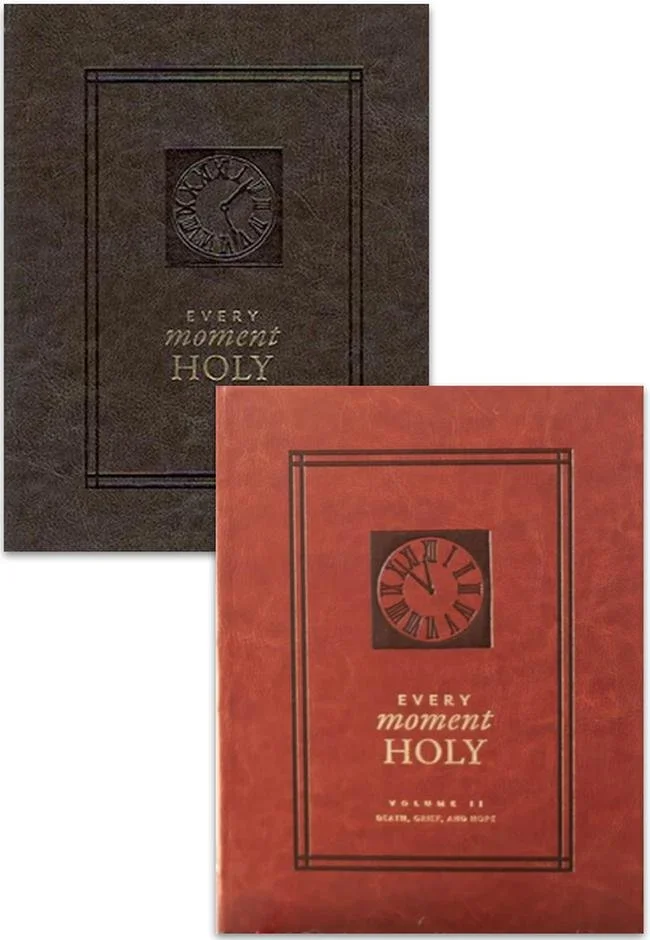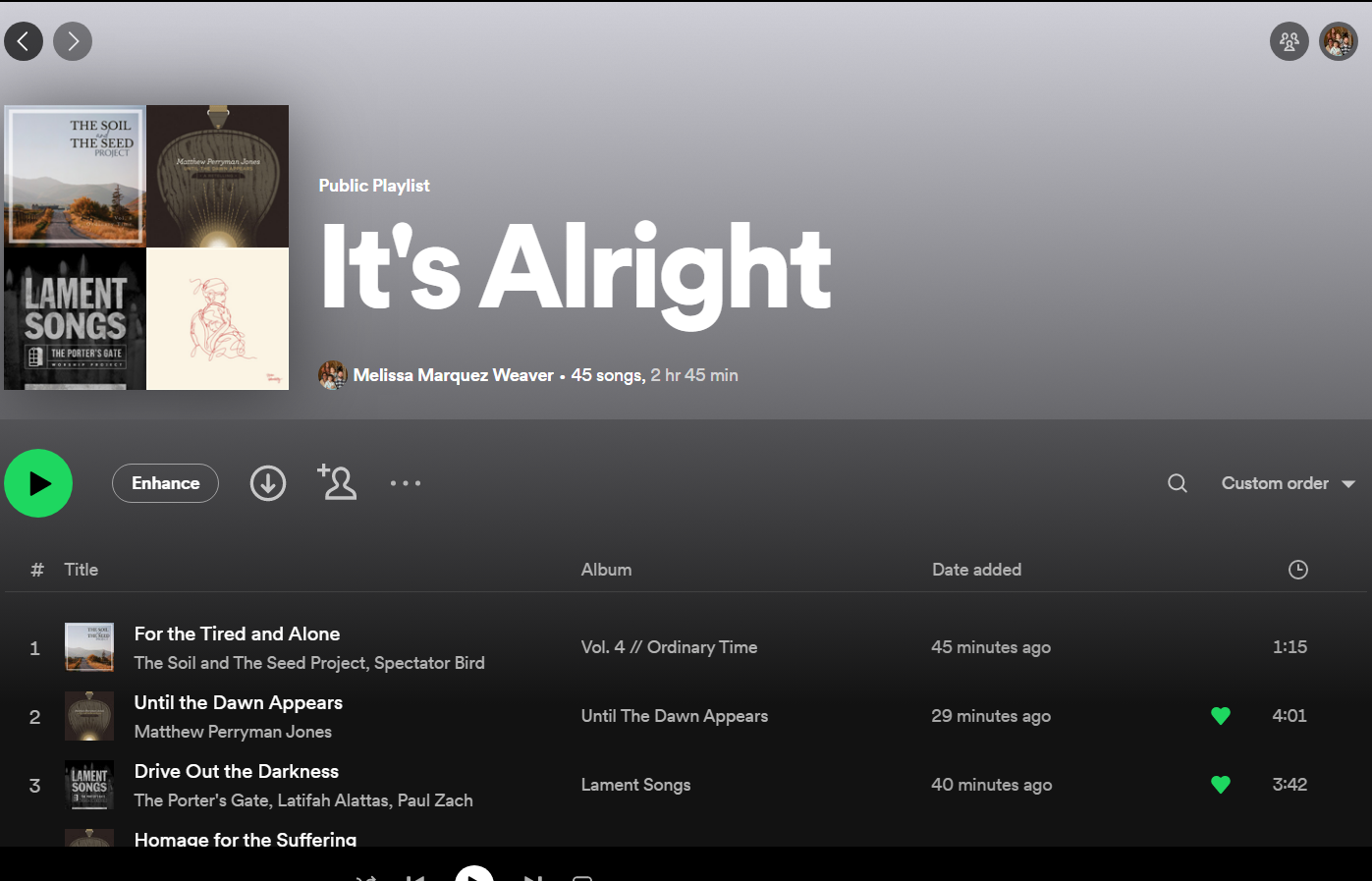Mental Health Awareness Month Part 2: Resources I Personally Recommend
Mental health is a topic that both energizes me and leaves me feeling tender and exposed like the IV bruise on my arm in the picture from September 2021. In the midst of an actual drought, I had come home from the ER after trying to find answers about crippling insomnia and anxiety that completely floored me in their reappearance. It wouldn’t be the first or the last time I went to the hospital hoping for some way to help me rest. Over the years, I have struggled through seasons of scrupulosity (religious compulsion), trauma from an addicted family system, post-partum anxiety and depression, medical anxiety and years of pain stored up in my body that refused to be silent anymore.
And I have been told to have more faith instead of fear. I’ve been in deliverance prayer sessions where I was encouraged to cough or breath out any demonic presence causing my mental pain. I’ve been told we hadn’t taken authority enough as a family over fear, that God was removing the dross from my life. I’ve been given books on forgiveness because my pain was supposedly caused by people in the past I hadn’t forgiven yet. I’ve been encouraged to not rely on medication and instead lean into prayer. People I love told me I was agreeing with the devil by naming a mental health condition and that I needed to just use will and make a choice to trust God and my feelings would follow.
Casual and careless and sometimes calculated opinions about faith and suffering, mental health and Christianity have caused our family so much pain over the years. It has taken years to untangle Scripture, popular opinion, personal convictions, fear-based advice, and insights from science and theology.
So, when I recommend resources, I do so EXTREMELY selectively. Here are my criteria for what I’d share with another believer:
Rooted in Scripture and particularly Christian faith tenets without spiritual bypassing or toxic victory messages
Research-based and created by actual licensed mental health professionals
Something I personally found transformative, so I can speak to its contents
Now, I realize that this means there will be holes in what I’m able to offer. There is a wealth of resources that are either not faith-based or that rely on theology I don’t adhere to myself that others have found helpful. There are simply resources I haven’t had time to encounter yet. However, I hope this list is helpful as I share with someone with lived experience in moving through suffering as a person committed to following Jesus.
Without further ado, here are my favorite recommendations:
Boundaries for Your Soul by Alison Cook and Kimberly Miller- This was the first place I ever encountered the idea of internal family systems and the Spirit-led self capable of leading difficult parts of myself. Combining the process of learning about, inviting Jesus to help heal, and integrating parts of ourselves that have caused pain with the boundaries work of Dr. John Townsend, this is a basic primer on how to relate to our inner world with grace and grit.
I remember the first time I listened to this conversation walking in Purcell Park, desperate for another option for treating my obsessive thoughts besides forcing myself to face my fears. It’s an easy listen and broke up a huge transformation in my life. The image of Jesus sitting with a difficult part while we have a hard interaction from a place of self-leadership is one that sticks with me today.
Conversations with Jenna Riemersma: Besides her book that I also highly recommend (All Together You, a Christian Perspective on IFS therapy model), I gobbled up any conversation she had with others concerned with trauma, addiction, betrayal, religious harm and hope. Her calm and clear explanations along with simple visuals are a great introduction to the Image of God within us and other parts of us that try to help but sometimes harm.
Move Toward with Jenna: Your Child’s Anxiety: This thirty minute course (you need to create an account but it’s free) was something that helped so much as my husband and I walked with our oldest daughter through a season of intense anxiety and fear. It’s also from Jenna Riemersma, and I found it immediately applicable and perspective-shifting.
Strong Like Water by Aundi Kolber:
This is my kind of book, an intersection of trauma-informed methods, healthy faith, neuroscience research, practices you can try, and a reimagining of strength and resilience. Trauma-survivor and researcher Kolber explains how to have an embodied approach to healing, and she’s done her research (but it’s not dry!)
Every Moment Holy Volumes I and II:
These should be on every home’s bookshelf, in my opinion, as they give words to both beautiful and simple times that are sacred and also situations we usually don’t see prayed about in liturgical ways. They can also be used in group or corporate settings. Here’s a whole list of the contents of both volumes. I’ve read, “For Those Who Cannot Sleep,” over and over, and “For When It Feels like the World is Falling Apart.” These are such rich resources for living and dying, celebrating and grieving, and for borrowing words when we have none.
The Best of You by Alison Cook: I thought I had heard most of what Cook has to say in her previous book but boy, was I wrong. This is the book I’m currently reading each morning, and WOW, I’ve been impressed. I don’t love the way the cover looks like a self-help manual and it is targeted toward women (though I thoroughly believe everyone could benefit from reading it) but its so readable and well-researched. It basically is like therapy from a Christian perspective, boiled down into one easy-to-read book that talks about co-dependency, attachment and development, painful patterns, boundaries, childhood wounds, and the best ways to move into the world as who God made you to be.
It’s Alright Playlist by Yours Truly: I am serious about collecting and curating music for various seasons, and that includes seasons of suffering. This playlist has songs that have personally spoken to my reality while also holding out truth and hope for healing.
May God bless you and keep you, no matter the season you are in and no matter how hard that season may be. I can testify that mental health challenges are excruciating but also that flourishing again is possible. What resources have you found to be helpful for mental health and healing? I’d love to know more about what others have found transformative.












